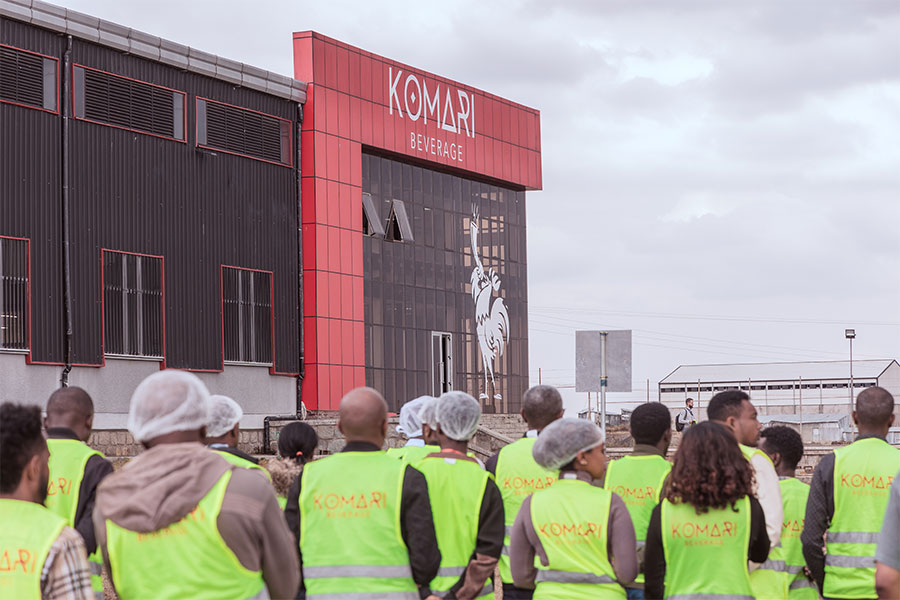
Commentaries | Jul 13,2019
Feb 16 , 2019
By Eden Sahle
We live in an era when tribalism has been elevated to dominate national discourse. It controls how people think and talk and determines what they oppose or support. Having served as one of the most important causes of conflict and an obstacle to economic development, tribalism is promoted by political entrepreneurs and seems to be embraced by the young and old.
This phenomenon, which never really went away even as Francis Fukuyama published “The End of Human History and the Last Man,” which asserted that liberal democracy would rule the world henceforth, has diverse effects in various countries.
It is not uncommon to find developed countries with diverse cultures and languages, including the United States and the nations of Europe. They too struggle with their own problems of “we” versus “them”, but these are rarely headline-grabbing incidents. There are differences, sometimes very toxic, but they are unable to penetrate democratic institutions and turn violent.
The same cannot be said for the rest of Africa, including Ethiopia, where conflict management is poor, and partisanship and tribalism are on full display. A dangerous obsession, tribalism is wearing down the type of national pride and development evident in diverse nations such as Switzerland or Belgium.
The challenge to democracy and lack of harmony in Ethiopia is not the occurrence of ethnic diversity, but the use of identity politics to promote political interests. It is reinforcing an unhealthy competition that is leading to harassment and violence that affects innocent civilians.
Ethiopia deserves genuine political parties that compete based on ideas and an informed public, instead of those that reinforce beliefs that hold political identities are inherent, to serve as foundations for political competition and social status.
Identity politics is not built on democratic ideas, and history has proven that it has not benefited democracy. It is also compounded by a lack of strong democratic and independent institutions with no substantial solution to the growing problem.
Tribalism overrides rationalisation and pure logic. As complicated as human beings are, our propensity for anger, hate and prejudice cloud our good judgement too much. This easily lends itself to our social lives and then politics.
How differences of opinions are managed over various issues is illuminating of the condition of society today. Arguments are made in a profoundly polarised manner, usually ignoring the opposing perspective and rarely admitting defeat.
What we are suffering from on a national level is what is described as cultural cognition. Our cultural identities powerfully shape our views, thus, we agree with beliefs of the groups with which we most strongly identify. The more challenged our views are, the more we defend them and the more dogmatic and closed-minded we become.
The survival of Ethiopia hangs in the balance if the public does not proactively come together and work on differences peacefully. It should be understood that there could not be a single vice or virtue that can possibly be attributed to a single group. They are either individual crimes or achievements that have been made to look like a trait belonging to the whole group.
The nation thus should build its institutions, promoting the shared values and aspirations that we all share, or at least should, such as freedom, prosperity, the rule of law and equality. We should be able to emphasise the value of the citizen to address discrimination and injustices while building a common national identity.
The most crucial factor that is lacking is an informed citizenry that understands and respects diversity and differences of opinion while subscribing to the view that unity is the best way forward. Belonging only matters to the extent that citizens feel appreciated, respected and cared for by their state.
Thus investing in liberal arts education, considered the backbone of a civilized society, can help the nation progress. It can provide the moral, emotional and intellectual development needed today.
If people can live with peace in mind, it ultimately paves the way for creativity and development. Societal harmony helps us generate collective consciousness among individuals, groups and organisations to provide unique and valuable services for the whole.
PUBLISHED ON
Feb 16,2019 [ VOL
19 , NO
981]

Commentaries | Jul 13,2019

Sunday with Eden | Feb 17,2024

Viewpoints | Apr 24,2021

Commentaries | Mar 28,2020

Featured | Oct 06,2024

Commentaries | Dec 31,2022

Advertorials | Feb 26,2024

Radar | Mar 27,2021

Viewpoints | Jun 03,2023

Sunday with Eden | Nov 23,2024

My Opinion | 131460 Views | Aug 14,2021

My Opinion | 127812 Views | Aug 21,2021

My Opinion | 125793 Views | Sep 10,2021

My Opinion | 123428 Views | Aug 07,2021

Dec 22 , 2024 . By TIZITA SHEWAFERAW
Charged with transforming colossal state-owned enterprises into modern and competitiv...

Aug 18 , 2024 . By AKSAH ITALO
Although predictable Yonas Zerihun's job in the ride-hailing service is not immune to...

Jul 28 , 2024 . By TIZITA SHEWAFERAW
Unhabitual, perhaps too many, Samuel Gebreyohannes, 38, used to occasionally enjoy a couple of beers at breakfast. However, he recently swit...

Jul 13 , 2024 . By AKSAH ITALO
Investors who rely on tractors, trucks, and field vehicles for commuting, transporting commodities, and f...

Jun 28 , 2025
Meseret Damtie, the assertive auditor general, has never been shy about naming names...

Jun 21 , 2025
A well-worn adage says, “Budget is not destiny, but it is direction.” Examining t...

Jun 14 , 2025
Yet again, the Horn of Africa is bracing for trouble. A region already frayed by wars...

Jun 7 , 2025
Few promises shine brighter in Addis Abeba than the pledge of a roof for every family...

Jun 29 , 2025
Addis Abeba's first rains have coincided with a sweeping rise in private school tuition, prompting the city's education...

Jun 29 , 2025 . By BEZAWIT HULUAGER
Central Bank Governor Mamo Mihretu claimed a bold reconfiguration of monetary policy...

Jun 29 , 2025 . By BEZAWIT HULUAGER
The federal government is betting on a sweeping overhaul of the driver licensing regi...

Jun 29 , 2025 . By NAHOM AYELE
Gadaa Bank has listed 1.2 million shares on the Ethiopian Securities Exchange (ESX),...